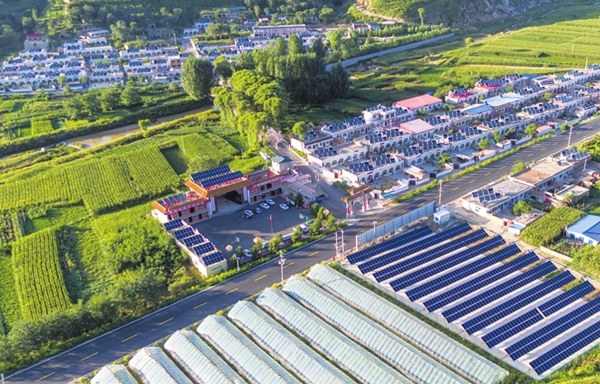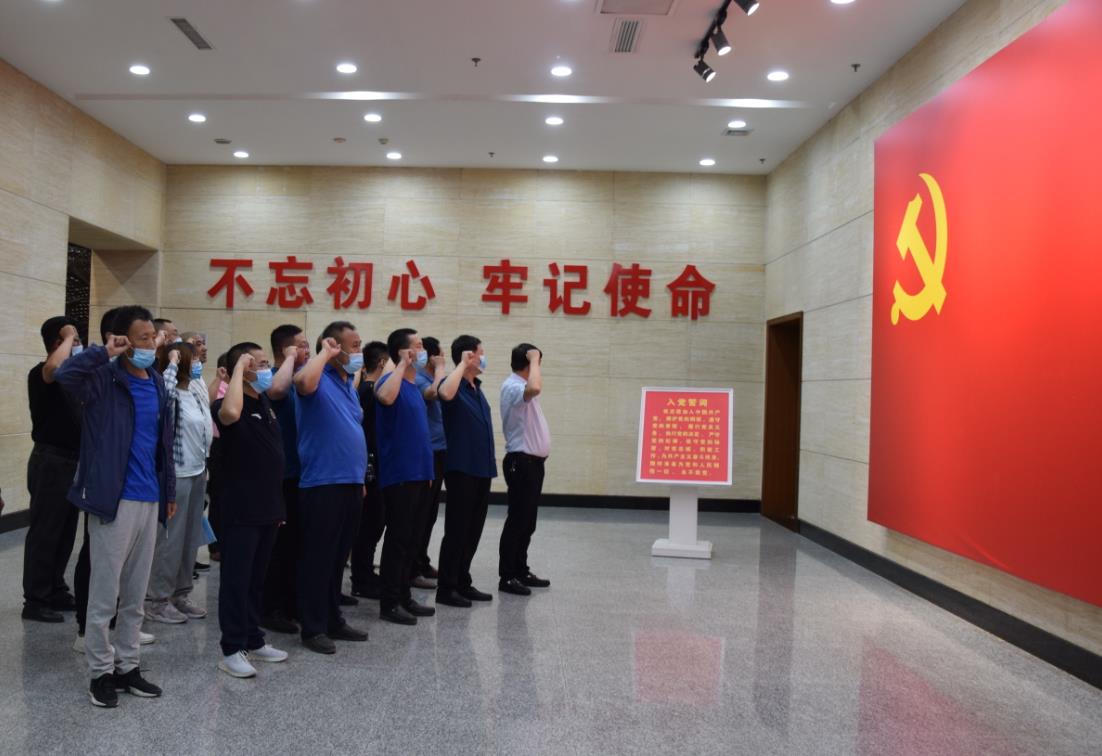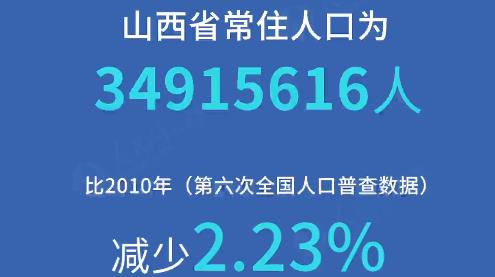
The solar farm in Xinyi township, Lishi district, in the city of Lyuliang includes photovoltaic panels installed on the roofs of farmhouses that can meet local demand and supply electricity to the rest of Shanxi province.

Residents in Zhonghe village in Yanggao county can get a per capita revenue of 260 yuan ($40) from the village's solar panels.
Business owners in Shanxi are benefiting from an improved business environment in the wake of the province reforming its administrative service and streamlining approval procedures to raise efficiency in March last year.
Government institutions in Shanxi have continued their reforms in these fields throughout March this year by announcing further delegating business-approval powers and reducing the number of certificates needed for market access,according to local officials.
Guo Anxin,an official at the Shanxi Market Regulation Bureau,said Shanxi's current practice means"a business license is all that's needed to begin operations".
In the past,business owners needed to first obtain various certificates,including those for fire safety,sanitation and admissions for the sale of drugs and medical equipment before they could apply for a business license to start operating.
The old practice meant that a business would spend several months applying for certificates before they could get a business licence and get their business moving.
"And now,businesses can begin operation upon acquiring a licence,while other certificates can be dealt with afterward,"Guo said.
The official added the number of certificates has also been reduced as a result of"merging similar functions into one certificate".
"For instance,a drugstore needed to apply for certificates for medicine sales,medical equipment sales and health food sales in the past.And now it only needs one certificate for all those things,"the official explained.
Taiyuan,the capital city of the province;Jinzhong,a city in central Shanxi;and the Shanxi Transformation and Comprehensive Reform Demonstration Zone are the three regions pioneering the reform for administrative services.
Lu Guibin,chief of the Jinzhong administrative service bureau,estimates that the time required for administrative approval procedures has been cut down by 85 percent over the past year since the reform was launched in the city.
"This means a saving of 4 million yuan($616,000)in operational costs a year for startups in Jinzhong,"Lu said.
Bai Wenyu,general manager of the Jinzhong branch of Shanxi-based drugstore chain Guoda Wanmin,said medicine and medical equipment dealers like his company are most pleased with the reform.
"Guoda Wanmin is a fast-growing company.We've been expanding by adding 100 outlets annually in recent years,with operations covering the entire province.
"The improved administrative efficiency and streamlined approval procedures have led to a substantial decrease in our operational costs,"Bai said."We are more optimistic about our development in the future."
Guo Anxin of the Shanxi Market Regulation Bureau predicted there will be a boom in entrepreneurship in the years to come due to the steadily improving business environment.
"We expect there will be a total of 4.5 million market entities in Shanxi by the end of the 14th Five-Year Plan(2021-25),compared with about 3 million in 2020,"Guo said.
Meng Ting contributed to this story.
By YUAN SHENGGAO
 山西路桥:党建引领 建好“四好农村路”山西路桥建设集团党委扎实开展“党建质量提升年”,实施“六大工程”,立足“十四五”高质量、高速度、高效益发展的战略基点,全面提高党建质量和党建引领发展水平,为打造“国内一流的交通基础设施投资、建设、施工现代化企业集团”提供坚强政治保障。
山西路桥:党建引领 建好“四好农村路”山西路桥建设集团党委扎实开展“党建质量提升年”,实施“六大工程”,立足“十四五”高质量、高速度、高效益发展的战略基点,全面提高党建质量和党建引领发展水平,为打造“国内一流的交通基础设施投资、建设、施工现代化企业集团”提供坚强政治保障。
 常住人口3491万 山西人口普查数据"出炉"山西省统计局向社会通报山西省第七次全国人口普查主要数据。数据显示,山西省常住人口为34915616人,比2010年(第六次全国人口普查数据,下同)减少2.23%,年平均减少0.23%。山西省常住人口总量减少,主要受人口流动变化等因素影响。
常住人口3491万 山西人口普查数据"出炉"山西省统计局向社会通报山西省第七次全国人口普查主要数据。数据显示,山西省常住人口为34915616人,比2010年(第六次全国人口普查数据,下同)减少2.23%,年平均减少0.23%。山西省常住人口总量减少,主要受人口流动变化等因素影响。